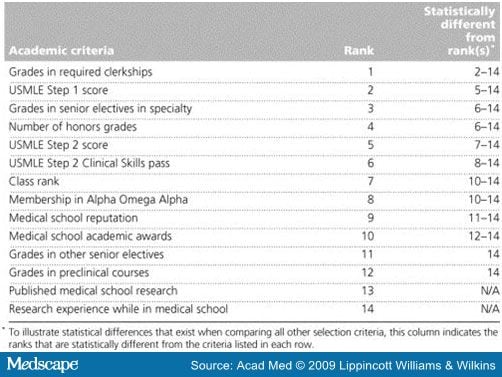- Joined
- Jun 15, 2011
- Messages
- 45
- Reaction score
- 3
If Yes, how heavily does it weigh on their decision or is mainly based on the grades and your ec's?
I got this from another forum. The guy who wrote made a good point.
"There is no question that it does matter where you went to med school, just as to how much it depends on several factors.A highly prestigious school in the top 10-15 will certainly have its graduates perceived in a way other schools may not-(Nearly everyone from Columbia matches at elite institutions,even in competitive specialties).."Average" applicants from these places will still stand out.It guarantees them nothing but opportunities at "name" hosptals are much better.Some places "ranked" slightly lower such as NYU have terrific reputations among residency directors and match a high percentage at top institutions.Once you pass the so-called "top 25" rank,the schools name means little.Overall.. individual accomplishment is the key,but it is recognized that some schools have such a highly selected student body that it does count.For the great majority of US medical grads where they went to school will end up mattering little in terms of achieving their professional goals when compared to other variables."
I got this from another forum. The guy who wrote made a good point.
"There is no question that it does matter where you went to med school, just as to how much it depends on several factors.A highly prestigious school in the top 10-15 will certainly have its graduates perceived in a way other schools may not-(Nearly everyone from Columbia matches at elite institutions,even in competitive specialties).."Average" applicants from these places will still stand out.It guarantees them nothing but opportunities at "name" hosptals are much better.Some places "ranked" slightly lower such as NYU have terrific reputations among residency directors and match a high percentage at top institutions.Once you pass the so-called "top 25" rank,the schools name means little.Overall.. individual accomplishment is the key,but it is recognized that some schools have such a highly selected student body that it does count.For the great majority of US medical grads where they went to school will end up mattering little in terms of achieving their professional goals when compared to other variables."
Last edited:

